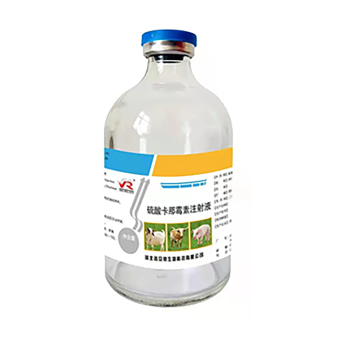- Afrikaans
- Albanian
- Amharic
- Arabic
- Armenian
- Azerbaijani
- Basque
- Belarusian
- Bengali
- Bosnian
- Bulgarian
- Catalan
- Cebuano
- Corsican
- Croatian
- Czech
- Danish
- Dutch
- English
- Esperanto
- Estonian
- Finnish
- French
- Frisian
- Galician
- Georgian
- German
- Greek
- Gujarati
- Haitian Creole
- hausa
- hawaiian
- Hebrew
- Hindi
- Miao
- Hungarian
- Icelandic
- igbo
- Indonesian
- irish
- Italian
- Japanese
- Javanese
- Kannada
- kazakh
- Khmer
- Rwandese
- Korean
- Kurdish
- Kyrgyz
- Lao
- Latin
- Latvian
- Lithuanian
- Luxembourgish
- Macedonian
- Malgashi
- Malay
- Malayalam
- Maltese
- Maori
- Marathi
- Mongolian
- Myanmar
- Nepali
- Norwegian
- Norwegian
- Occitan
- Pashto
- Persian
- Polish
- Portuguese
- Punjabi
- Romanian
- Russian
- Samoan
- Scottish Gaelic
- Serbian
- Sesotho
- Shona
- Sindhi
- Sinhala
- Slovak
- Slovenian
- Somali
- Spanish
- Sundanese
- Swahili
- Swedish
- Tagalog
- Tajik
- Tamil
- Tatar
- Telugu
- Thai
- Turkish
- Turkmen
- Ukrainian
- Urdu
- Uighur
- Uzbek
- Vietnamese
- Welsh
- Bantu
- Yiddish
- Yoruba
- Zulu
ਦਸੰ. . 04, 2024 22:57 Back to list
Tylan Injectable Treatment Options for Chickens and Their Benefits
Tylan Injectable for Chickens An Overview
Tylan, or tylosin, is an antibiotic that is commonly used in veterinary medicine for chickens and other livestock. This macrolide antibiotic, derived from the bacteria *Streptomyces fradiae*, has gained prominence for its effectiveness in combating various bacterial infections. Specifically, it is used to treat respiratory diseases and certain intestinal infections in poultry, making it a crucial tool for poultry farmers aiming to maintain the health of their flocks.
Uses of Tylan in Poultry
Tylan injectable is most often administered to chickens to manage diseases such as infectious coryza, mycoplasmosis, and chronic respiratory diseases. These conditions can lead to significant morbidity and mortality in poultry populations, adversely affecting their growth performance, egg production, and overall profitability. Tylan works by inhibiting bacterial protein synthesis, thereby preventing the replication of harmful pathogens.
Veterinarians may recommend Tylan for chickens in various forms, including oral administration or as an injectable solution. The injectable form is typically preferred for more severe infections or when rapid treatment response is required, as it allows for greater control over dosage and absorption.
Administration and Dosage
The administration of Tylan injectable should always follow a veterinarian's prescription to ensure the correct dosage and treatment duration. The dosages can vary based on the age and weight of the chickens, as well as the specific infection being treated. Typically, a veterinarian will provide clear guidelines on how to administer the medication effectively, ensuring that farmers can achieve the best possible outcomes for their flocks.
To administer Tylan injectable, farmers should follow strict sanitary practices. This includes using sterile needles and syringes to prevent any potential complications or infections at the injection site. The injection is usually given subcutaneously or intramuscularly, depending on the veterinarian's recommendations.
tylan injectable for chickens

Potential Side Effects and Considerations
While Tylan is generally considered safe for chickens, there are potential side effects to be aware of. Some chickens may experience localized swelling or pain at the injection site. Rarely, systemic reactions can occur, although these are not common. It is essential for poultry farmers to monitor their birds closely after administering Tylan injectable to identify any adverse reactions early.
Moreover, there are important considerations regarding the withdrawal period before slaughter. Farmers must adhere to the withdrawal time specified by veterinarians or product labeling to avoid antibiotic residues in meat and eggs, which could have implications for human health and marketability.
Tylan Resistance and Future Implications
As with any antibiotic, there is a risk of developing antibiotic resistance when using Tylan. Overuse or improper dosing can contribute to the emergence of resistant bacterial strains, complicating future treatment options. This highlights the importance of responsible antibiotic use in poultry farming. Implementing good management practices, such as biosecurity measures and vaccination programs, can help reduce the reliance on antibiotics like Tylan.
Conclusion
Tylan injectable plays a critical role in the health management of chickens, effectively controlling bacterial infections and promoting flock welfare. However, its use must be approached with caution and responsibility, guided by veterinary advice and best practices. By balancing the need for effective disease management with the principles of responsible antibiotic use, poultry farmers can safeguard both their flocks’ health and the broader agricultural environment. As the industry evolves, continued research and dialogue around antibiotic use in livestock will be essential to maintain the health of poultry and ensure sustainable farming practices.
-
Guide to Oxytetracycline Injection
NewsMar.27,2025
-
Guide to Colistin Sulphate
NewsMar.27,2025
-
Gentamicin Sulfate: Uses, Price, And Key Information
NewsMar.27,2025
-
Enrofloxacin Injection: Uses, Price, And Supplier Information
NewsMar.27,2025
-
Dexamethasone Sodium Phosphate Injection: Uses, Price, And Key Information
NewsMar.27,2025
-
Albendazole Tablet: Uses, Dosage, Cost, And Key Information
NewsMar.27,2025













